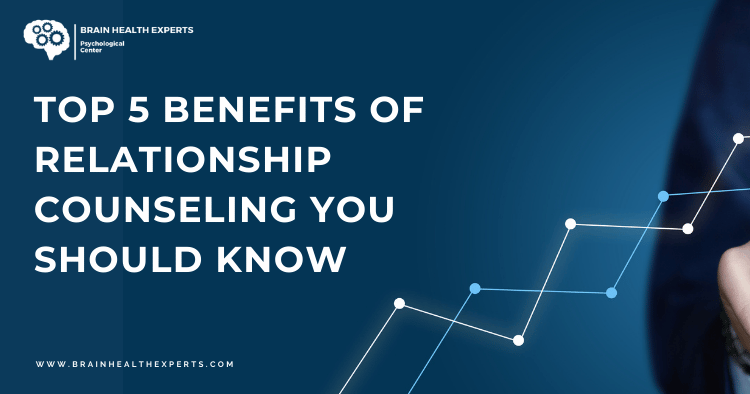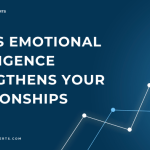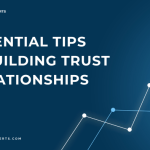Table of Contents
- Introduction
- Improved Communication Skills
- Conflict Resolution Strategies
- Strengthened Emotional Connection
- Personal Growth and Self-Awareness
- Professional Guidance and Support
- Conclusion
- FAQs
Introduction
Relationships can be both beautiful and challenging. At times, every couple faces hurdles that can lead to misunderstandings, resentment, or even separation. Relationship counseling offers a safe space for couples to navigate these challenges with the guidance of a professional. In this article, we’ll explore the top five benefits of relationship counseling that can help foster healthier, happier connections.
Improved Communication Skills
One of the most significant benefits of relationship counseling is the enhancement of communication skills. Effective communication is the cornerstone of any successful relationship. Often, couples struggle to articulate their feelings or listen to each other, leading to frustration and conflict.
“Good communication is the bridge between confusion and clarity.”
What Happens in Counseling?
During counseling sessions, a trained therapist will help couples identify communication barriers. They’ll teach techniques such as:
- Active Listening: Focusing fully on the speaker and acknowledging their feelings.
- I-Statements: Expressing feelings without placing blame (e.g., “I feel hurt when…”).
- Nonverbal Cues: Understanding and utilizing body language effectively.
These skills can transform how partners interact, leading to a more open and honest dialogue.
Visual Aid: Communication Techniques Table
| Technique | Description | Benefit |
|---|---|---|
| Active Listening | Fully concentrating on what is being said | Promotes understanding and empathy |
| I-Statements | Expressing feelings without blame | Reduces defensiveness |
| Nonverbal Cues | Utilizing body language and facial expressions | Enhances emotional connection |
For further insights on communication skills, check out 10 Tips to Overcome Negative Thought Patterns Today.
Conflict Resolution Strategies
Every relationship will experience conflict; it’s how you handle it that makes the difference. Relationship counseling equips couples with effective conflict resolution strategies, ensuring that disagreements become opportunities for growth rather than sources of division.
“Conflict is inevitable, but combat is optional.”
Learning to Resolve Conflicts
Counselors guide couples through various techniques:
- Identifying Triggers: Understanding what specifically causes arguments.
- Time-Outs: Taking breaks during heated discussions to cool down.
- Finding Compromise: Working together to meet each other halfway.
By learning these strategies, couples can tackle conflicts more constructively, fostering a sense of teamwork rather than opposition.
FAQ: How Can I Apply These Techniques Outside of Counseling?
Many couples find it helpful to practice conflict resolution techniques in low-stakes situations before applying them in more heated discussions. Regular check-ins about feelings can also provide a proactive approach to potential conflicts.
Also look for 10 Effective Strategies for Building Resilience in Relationships to enhance your conflict resolution skills.
Strengthened Emotional Connection
Counseling isn’t just about resolving issues; it’s also about fostering deeper emotional bonds. Through guided discussions and activities, couples can reignite the spark that may have faded over time.
“The best relationships are the ones that bring out the best in you.”
Activities to Enhance Connection
Therapists often introduce exercises designed to strengthen emotional intimacy, such as:
- Shared Experiences: Engaging in new activities together.
- Expressing Gratitude: Regularly acknowledging each other’s efforts.
- Vulnerability Exercises: Sharing fears and dreams to build trust.
These activities encourage partners to view each other in a new light, fostering compassion and understanding.
Personal Growth and Self-Awareness
While relationship counseling focuses on the partnership, it also promotes individual growth. Understanding oneself better can lead to healthier interactions with your partner.
“Personal growth is the process of becoming the best version of yourself.”
The Benefits of Self-Awareness
Counselors often encourage self-reflection, helping individuals to:
- Identify Patterns: Recognize repetitive behaviors that might be harmful.
- Understand Triggers: Learn what emotional responses stem from past experiences.
- Set Personal Goals: Focus on individual aspirations that can enhance the relationship.
As each partner grows independently, they bring more to the relationship, leading to a more balanced and fulfilling partnership.
Visual Aid: Self-Awareness Reflection Table
| Aspect | Focus Area | Outcome |
|---|---|---|
| Identify Patterns | Recognizing harmful behaviors | More conscious decision-making |
| Understand Triggers | Emotional responses | Better control over reactions |
| Set Personal Goals | Individual aspirations | Enhanced partnership dynamics |
Explore 10 Ways Positive Thinking Fuels Personal Growth Journey for more insights on personal development within relationships.
Professional Guidance and Support
Navigating relationship challenges can be overwhelming, but having a trained professional can provide essential guidance and support. Therapists bring objectivity and expertise, helping couples explore deeper issues.
“The greatest gift you can give to others is the gift of unconditional love and acceptance.”
Why Professional Support Matters
- Neutral Perspective: A counselor remains impartial, reducing bias.
- Expertise: Professionals have training in various therapeutic approaches tailored to different needs.
- Safe Space: Counseling provides a confidential environment where both partners can express their feelings without judgment.
FAQ: How Do I Choose the Right Counselor?
Look for credentials, experience in relationships, and compatibility with your personality. Many therapists offer a free consultation to assess fit. Websites like Psychology Today can help you find qualified professionals in your area.
Conclusion
Relationship counseling is a valuable resource for couples seeking to enhance their connection, communication, and overall relationship satisfaction. From improved communication skills to professional guidance, the benefits are numerous. If you’re facing challenges in your relationship, consider reaching out to a professional counselor. Every relationship deserves a chance to thrive!
FAQs
1. How long does relationship counseling typically last?
The duration of counseling varies based on individual needs, but many couples find significant improvement within a few months.
2. Is relationship counseling only for couples in crisis?
Not at all! Counseling can benefit couples at any stage, whether they are facing issues or simply looking to strengthen their bond.
3. Can counseling help with issues outside of the relationship?
Yes, many counselors also help individuals with personal issues that may affect their relationships, fostering overall well-being.
For more information on relationship counseling and its benefits, consider visiting the American Association for Marriage and Family Therapy.
Explore additional resources like 10 Ways Positive Thinking Transforms Your Relationships for more insights into fostering healthy relationships.





